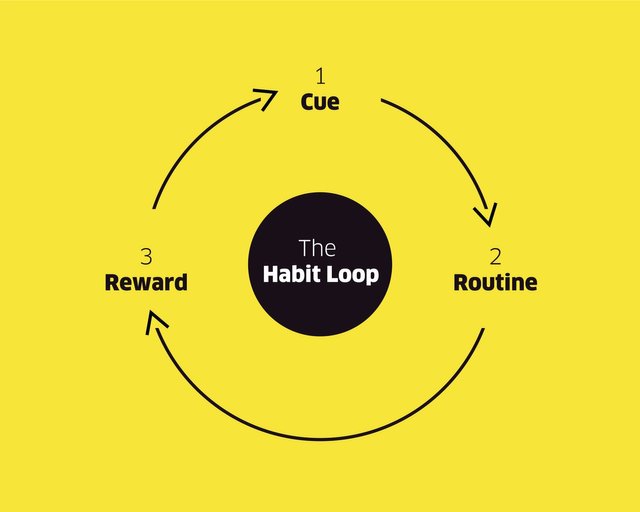Original post here.

Any good book, fiction or non, is going to inspire you. Fiction does it through made-up stories. The best non-fiction books use stories as well – but real ones. Any good writer, as Malcolm Gladwell says it, doesn’t merely give you ideas; they have the patience to find them with you.
The Power of Habit does just that. As someone who loves stories and is writing his own novel now, I constantly hear “show, don’t tell.” Others will say to “think reader-first.” These rules don’t just apply to fiction; they’re just as important if you want to capture and inspire readers with non-fiction! (They also seem to help you remember more effectively!)
Charles Duhigg is an absolute master of this. Even if you’re not particularly interested in habits or neuroscience, you probably will be. Every chapter in Power of Habit gives a powerful takeaway through memorable stories. All of it is accessible and beautifully written, if only for its simplicity.
Less how-to, more how come
It’s entitled Power of Habit because it’s about exactly that. Habits are powerful! You won’t find a whole lot of how-to here, at least not explicitly. You’ll see how important habits are to your health and your success in life; you’ll find wisdom on how to make your habits serve you instead of enslave you; and you’ll get insight into how they shape society and make a difference on a social level. One chapter is particularly relevant given events surrounding George Floyd’s death which happened only weeks before this post. Whoever thought protests were so interwoven with social habits that make up our society?
I’ll share one life-changer.
Some habits are basic but powerful. They overflow into the rest of your life; a domino effect. The concept of making one’s bed in the morning has been popular parlance in recent years. The idea goes as such: start the day with one win, however small, and you’ll set yourself up for ongoing success. Turns out Michael Phelps used this keystone idea to turn many small wins into his many Olympic medals.
I’ve committed to these small wins. Make my bed every morning. Go to bed at the same time every night and wake up at the same time each day. Soon these habits built on one another, and other parts of my life teemed discipline that was so difficult months prior!
Finally, Duhigg makes habits relevant. Whether I’m a student, leader, in business, or just trying to put my life together, Power of Habit will, well, empower me to do so.
Time multiplies our decisions. For that reason alone, I can recommend the book and, with relative confidence, suggest that it could be a life-changer for you – and perhaps those around you (thank Duhigg for that principle, too).